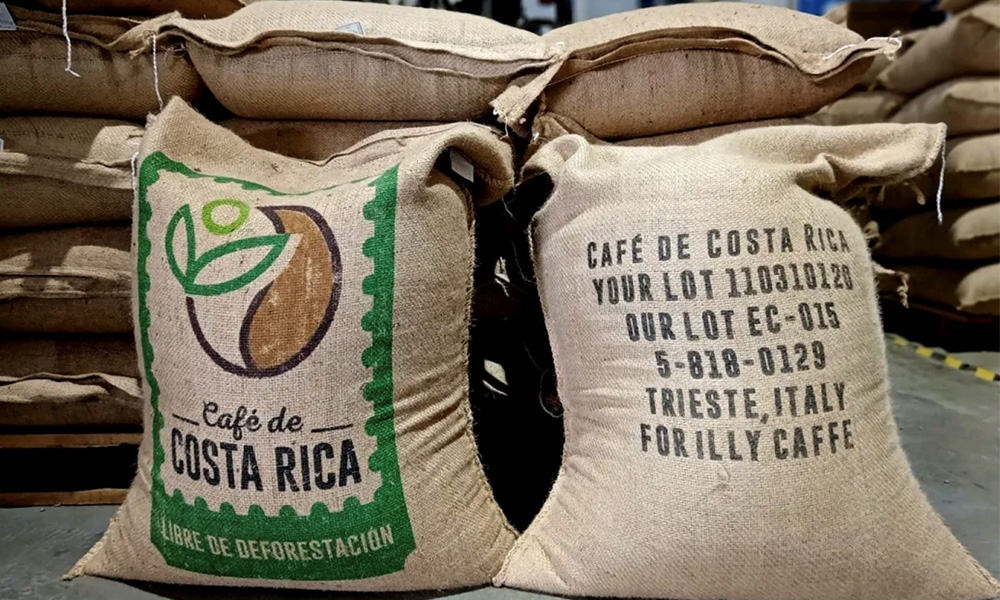Costa Rica exported its first certified deforestation-free coffee. The coffee sector considers this a milestone and a step towards the European Union’s Green Pact, which will begin to take effect next December.
In the morning, the container that will carry the coffee to Trieste was sealed. The activity took place at Exclusive Coffees in Alajuela, from where the shipment purchased by the company Illy Café was sent.
This first export, managed by CoopeTarrazú, consists of 275 bags of coffee beans, each weighing 69 kilos. This coffee is the result of considerable efforts made by producers in the south of the country and guarantees that it has been harvested on Costa Rican farms that have been deforestation-free since 2020.
Since 2019, the European Union has adopted the Green Deal, a transformative plan for its economies and societies that promotes mitigation measures against climate change.
One of its provisions states that, just as deforestation is prohibited in Europe, the importation of goods whose production has involved deforestation practices will not be allowed, especially in the case of meat, cocoa, coffee, palm, soy, and timber. It is the responsibility of traders to demonstrate, from the origin, the due diligence of each product.
The executive director of the Costa Rican Coffee Institute (ICAFE), Gustavo Jiménez, stated that “it is with great pride that we announce the first export of deforestation-free coffee from Costa Rica. We are facing great challenges as a coffee sector, and this type of effort positions us once again as a leader and reference country in environmental issues.”
To ensure that the exported harvest is deforestation-free, producers participated in a pilot project to define how to ensure the due diligence of their production.
In 2023, as part of the work of the REDD+ Results-Based Payments (RBP) Project, UNDP set out to scale up efforts against deforestation by motivating the productive sectors to take action.
Given the strength of the coffee sector in the country and its great work in the area of environmental sustainability, UNDP and ICAFE decided to promote a pilot project for the future implementation of the Green Pact. The European market is the destination for 38.4% of Costa Rica’s coffee production.
“We decided to work with the area of Los Santos, which contributes the largest volume of production to the country, and with the Tarrazú Coffee Growers Cooperative – COOPETARRAZU R.L. – because it is the largest in the country, representing 4,500 producers, which exports 25.3% of its production to Europe and is the third-largest exporter to that continent,” explained Xinia Chaves, UNDP consultant and leader of the pilot project.






